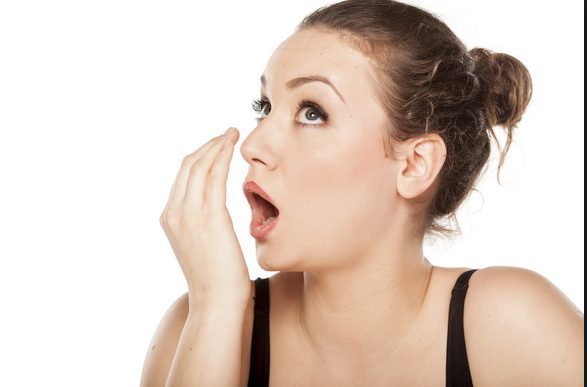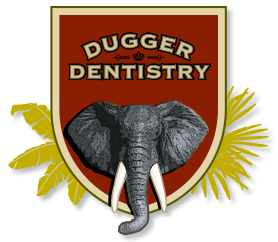Five Easy Steps to Improve Bad Breath

If you suffer from persistent bad breath know that you’re not alone. Approximately 40 million Americans suffer from halitosis, the clinical term for bad breath, according to the American Dental Hygienists’ Association.
Bad breath carries a heavy social stigma that many people will go out of their way to avoid. When not correctly dealt with, bad breath can interfere with your personal and professional lives, and serve as a constant source of embarrassment. Fortunately, dentist in West Linn Dr. Robert Dugger is here to provide you with a number of ways to improve and freshen your breath.
Practice Better Oral Hygiene
One of the leading causes of bad breath is plaque, a sticky bacteria that builds up on and between teeth. When left to fester, this bacteria can produce strong odors that can transform your breath from fresh to funky. Failing to regularly brush your teeth also allow lingering food particles to remain in your mouth. Once these particles begin to decay, your breath will quickly sour.
To remove foul smelling plaque and food particles from your mouth, you need to floss and brush at least twice a day, as well as schedule regular cleanings with Dr. Dugger. By spending as little as five minutes a day tending to your oral hygiene, you can help to eliminate one of the biggest reasons people suffer from bad breath.
Give Your Tongue a Scraping
Your tongue has a natural coating that can accumulate foul-smelling bacteria if you don’t take the time to properly clean it. By giving your tongue a quickly scrubbing with a toothbrush, you can remove this built up bacteria and eliminate any odors they may cause.
Some people find a toothbrush too large to comfortably reach the back of their tongue. If this becomes a problem for you, try using a tongue scraper instead. A tongue scraper is specially designed tool that evenly applies pressure across the tongue to ensure the removal of all bacteria, dead cells, and lingering food particles that a toothbrush would normally miss.
Avoid Foul Smelling Foods
Certain foods do more than just smell funky, they can also alter your breath for several hours after you consume them. Garlic, onions, liverwurst, or whatever your funky food of choice influence how your breath smells from the moment you take that first bite until your body has completely digested them.
When these types of food enter your digestive system, the odorous substances they contain enter the blood stream and travel to your lungs, where you breathe them out. Since these odors originate from your lungs and not your mouth, brushing, eating a mint, or using mouthwash won’t eliminate the smell, only mask it temporarily. Your lunchtime decisions will continue to haunt your breath until the foods have been completely digested out of your system, a process that could take hours.
Stop Smoking
While eliminating bad breath may not top the list of good health reasons to quit smoking, consider it just one more enticing benefit. Few personal habits can have the type of devastating effects on your oral health as smoking, which damages gum tissue and can permanently stain your teeth. As a general rule, the worst off a person’s oral health, the more odorous their breath becomes, so quit the habit and you’ll breathe a little fresher.
Chew Gum After a Meal and Skip the Mint
Sugary candies and mints enable the growth of bacteria in the mouth that can contribute to problems with bad breath. By chewing sugarless gum after a meal, not only can you freshen your breath, you also increase saliva flow in the mouth, which helps to remove lingering food particles and bacteria.
If you have any questions about the best ways to fight bad breath, feel free to ask any member of our West Linn dental care staff during your next visit to Dugger Dentistry.
